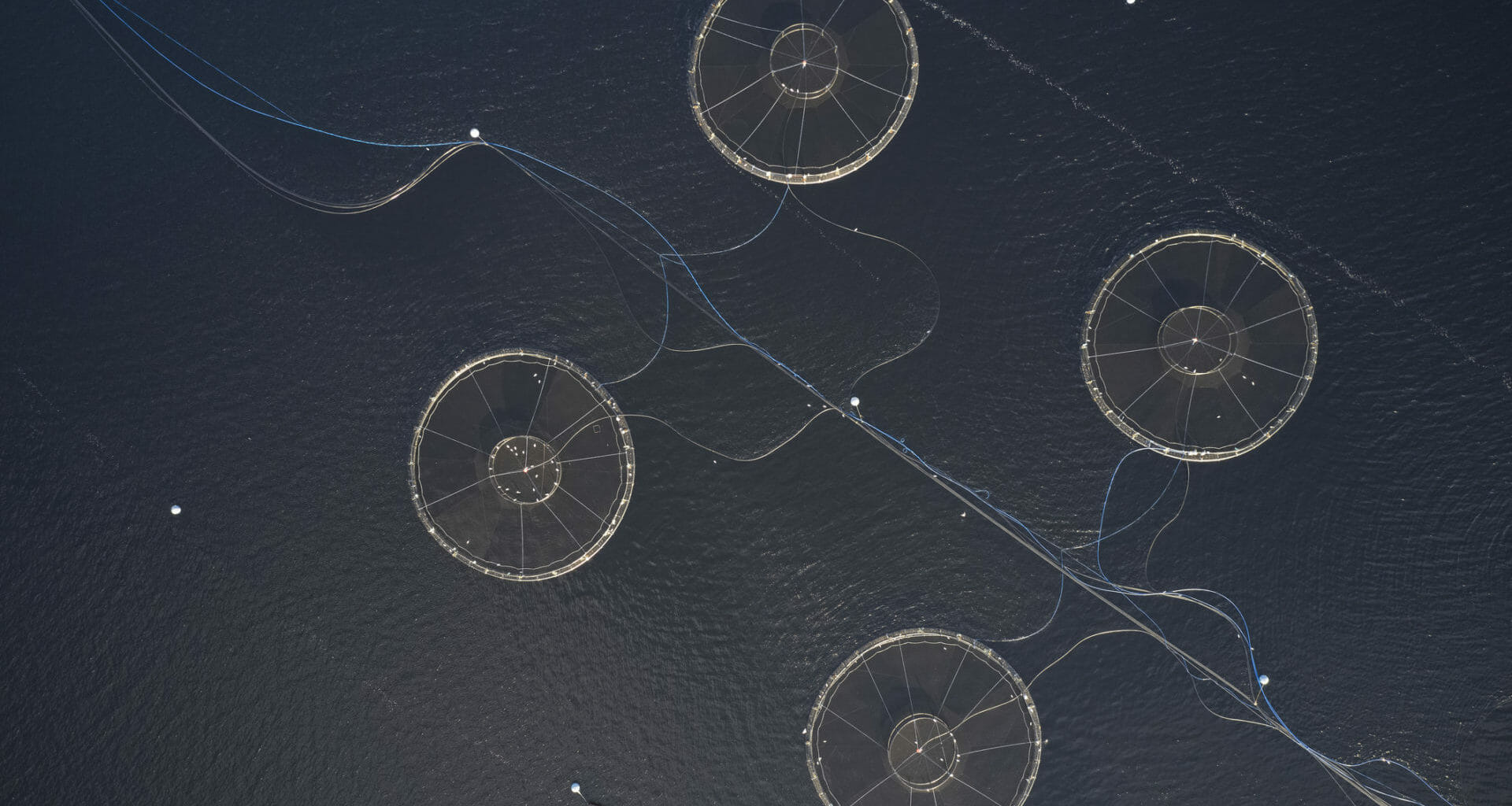Fish farming companies are being allowed to breach environmental limits and pollute lochs because of export problems caused by Brexit.
The Scottish Environment Protection Agency (Sepa) has extended Covid-19 relaxations to help the farmed salmon industry cope with business losses caused by new procedures for exporting to European Union (EU) countries. Sepa is also permitting extra salmon cages to be installed without licences.
The moves have been condemned as “unacceptable” by coastal community groups, who accused Sepa of a “dereliction of duty”. They fear that more marine wildlife could be harmed by pollution from fish farms, and more sea lice could spread to wild salmon.
Salmon farming companies, however, praised Sepa’s “regulatory flexibility”, which they suggested had only been used “sparingly”. Seafood exporters had suffered “delays, cancelled orders and lost customers” because of Brexit red tape, they said.
Sepa described the relaxations as “temporary” but has not said when they will end. Fish farm companies would be expected “to minimise the risk of harm to the environment as far as possible”, it said.
The Ferret revealed in April 2020 that Sepa had relaxed rules governing the weight of salmon kept in cages and how long they can stay there. This was to help fish farms cope with staff shortages caused by the coronavirus pandemic.
We also reported in April that rules on the use of toxic pesticides by salmon farms had been relaxed to help with staffing issues. The pesticide relaxations were ended by Sepa in August 2020.
Sepa is currently trying to recover from a “complex and sophisticated” cyber attack demanding a ransom on 24 December 2020. An estimated 4,000 files were stolen by criminals, and the agency has lost access to most of its computer systems.
Yet on 28 January 2021 Sepa issued an addendum to its “temporary regulatory position statement” on fish farming. This extended Covid-19 exemptions to include the “additional challenges” posed by “the immaturity of new export procedures required under EU exit.”
The rules enable salmon companies “to temporarily exceed authorised biomass limits on farms, subject to certain conditions being met.” Farms can “postpone harvests and hold fish longer at sea as a means of helping buffer difficulties in marketing product.”
Sepa accepted that keeping fish in cages for longer can cause problems as they grow. “Holding fish at higher densities than normal can result in increased health challenges,” it said.
Sepa has also given companies the green light to add extra cages to reduce densities without going through the usual procedures. “The temporary addition of pens to an authorised pen group will not be treated as a non-compliance,” Sepa stated.
New pens were “subject to conditions relating to size, location and proximity to sensitive features,” Sepa added. “Sepa must be notified prior to the addition of any new pens.”
Sepa insisted that “all efforts are made by operators to minimise the risk of harm to the environment as far as possible”. Limits should not be breached “where the environmental risk resulting from exceeding those limits is greatest.”
Salmon cages sited in lochs deposit excrement, waste and chemicals, which can harm marine wildlife. Sepa’s guidance to fish farms highlights “sensitive seabed features” at risk such maerl, flame shell and mussel beds.
Farmed salmon can also be infested by sea lice, which can spread to and damage wild salmon and trout. Sepa listed 22 lochs where there was a “high interaction potential” for lice, and 30 with a “medium interaction potential”.
The Coastal Communities Network Scotland, which brings together 18 local groups concerned about the marine environment, was not consulted on the latest changes. “We wholeheartedly disagree with this purely economic decision,” said the network’s John Aitchison.
Fish farming was the biggest polluter of Scotland’s seas and its impacts were “unacceptable”, he argued. “To allow this increased risk for purely economic reasons is a dereliction of Sepa’s duty.”
Aitchison highlighted a series of gaps and caveats in the new rules which gave fish farm companies wide discretion. He questioned how Sepa could tell which seabeds were at risk of damage when pollution from 61 farms had not been assessed.
“Scotland’s fish farmers claims to be the most tightly regulated in the world. These changes show how much power they have over their regulators,” he told The Ferret.
“The regulation of Scotland’s fish farms needs a complete overhaul, starting with an assessment of the cumulative impacts of all existing farms, and the capacity of our coastal waters to take any more pollution or sea lice. This is really urgent.”
One wonders if Sepa staff on the ground are really happy about this? I doubt it.
Guy Lindley-Adams, Salmon and Trout Conservation Scotland
The wild fish campaign group, Salmon and Trout Conservation Scotland, criticised the fish farming industry for failing to plan for the predicted Brexit export problems.
“Basically Sepa is now being told it must allow damage to the environment to ensure profits continue for the fish farmers,” said the group’s solicitor, Guy Lindley-Adams.
“One wonders if Sepa staff on the ground are really happy about this? I doubt it.”
The Scottish Greens called on Sepa to urgently review its “disappointing” decision. Downgrading the “already lax” regulatory framework was the wrong way to proceed, said the party’s environment spokesperson, Mark Ruskell MSP.
“There needs to be much greater consideration given to the environmental impact of fish farms if this industry is to genuinely provide long term sustainable employment in rural communities.”
Regulatory flexibility, which has been used sparingly by our members, has supported the salmon farming sector.
Spokesperson, Scottish Salmon Producers Organisation
The Scottish Salmon Producers Organisation (SSPO), which represents fish farming companies, commended Sepa. “The willingness of Scotland’s environmental regulator to introduce a more flexible approach has helped Scotland’s salmon farmers cope with the impacts of both Covid-19 and Brexit,” said the organisation’s spokesperson.
“Regulatory flexibility, which has been used sparingly by our members, has supported the salmon farming sector while safeguarding fish health and welfare throughout this extraordinary period. It has also ensured appropriate safeguarding of the environment.”
The SSPO spokesperson added: “Since the introduction of new checks, rules and bureaucratic regulations at the start of year – brought about by the end of the Brexit transition period – seafood exporters have had to endure delays, cancelled orders and lost customers.
“The situation has improved but there are still serious issues which are causing problems, mostly linked to the huge amounts of new paperwork that is needed to export seafood to the EU.
“We hope the formation of a new joint Scottish-UK government task force, called for by the SSPO and now being introduced, will help tackle these extremely significant issues.”
The Scottish Environment Protection Agency stressed it was trying to safeguard the environment while helping industry to adapt. “We were clear that we would support sectors working to do the right thing and uncompromising in our warning to those who would seek to take advantage of the pandemic,” said the agency’s head of ecology, Peter Pollard.
“Against the dual impacts of Covid and EU exit we continue to support critical sectors, including those supporting Scotland’s food security, to take sensible and reasonable steps to safeguard public health, the environment and stock welfare. Temporary regulatory positions remain subject to regular review.”
This story was updated at 10.55 on 12 February 2021 to say that relaxations on pesticide use introduced in April 2020 ended in August 2020. Cover image thanks to iStock/richard johnson.















SEPA in the pocket of SSPO (Disgraceful)